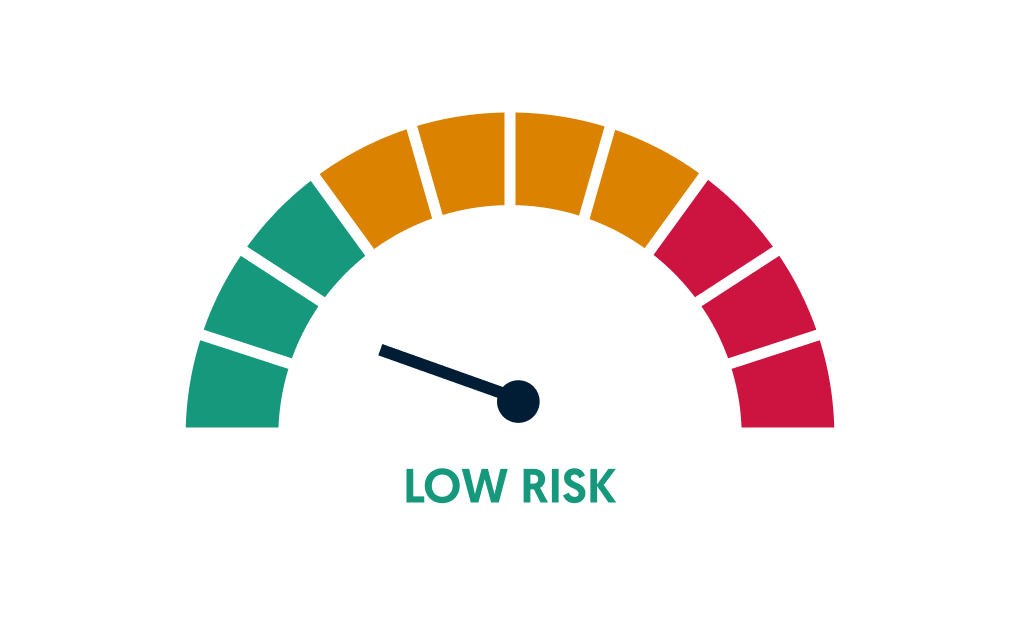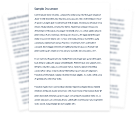Website Terms and Conditions of Use (Goods)
This Website Terms And Conditions of Use (Goods) outlines the rules people must follow when using your website. It includes protection for your IP, disclaimers to limit your liability and makes you compliant with Australian law.
4.6 (121 reviews)
Last updated October 23, 2025
Under 5 minutes
Suitable for Australia
Written by Edwin Montoya Zorrilla
Reviewed by Damin Murdock
Document Overview
This Website Terms and Conditions of Use document allows you to state your business service standards and is especially beneficial for an online store or businesses selling goods and services through a website. In fact, it is required by that online businesses have a Website Terms and Conditions that is easily accessible to website users.
By selling goods or services, your online business needs to set out the rules for using their website, adhere to the applicable law and legal requirements, protect their intellectual property and limit liability for the website.
Other names for this document can include:
- Website Terms and Conditions;
- Website Terms of Use; and
- Website T&Cs.
This document has been made specifically for websites selling goods (e.g. eCommerce sites) however we also have variations available for:
Further Information
The Legal Risk Score of a Website Terms and Conditions of Use (Goods) Template
Our legal team have marked this document as low risk considering:
- The document allows for the terms and conditions to be changed at any time by the website operator without prior notice, which could lead to unexpected obligations or modifications that users might not be immediately aware of.
- The document asserts extensive control over the use of the website's content and services, limiting users' ability to use the material beyond personal use without express permission, potentially restricting creative or commercial endeavors.
- The document does not need to be signed.

Website Terms and Conditions of Use (Goods) Checklist
Complete your free Website Terms and Conditions of Use (Goods) with our checklist
Make the document clearly available on your website
This must be done to ensure that it has been brought to the notice of users and is therefore enforceable.
Review Updated Terms Regularly
Stay informed of any changes by regularly reviewing the updated terms on the website since the terms can change at the operator's discretion.
Understand Intellectual Property Restrictions
Familiarize yourself with the intellectual property rights stated in the document to avoid unauthorized use that could lead to legal consequences.
Monitor Payment Obligations
Keep track of any payments and understand any financial obligations or conditions associated with the use of the services to avoid unexpected fees or charges.
What does the Website Terms and Conditions of Use cover?
- Australian consumer law and consumer guarantees;
- Delivery of goods, returns and refunds policy;
- Privacy and a disclaimer for warranties;
- Disclosure of information;
- Your ownership and intellectual property;
- Limiting liability for information and material;
- Limiting liability for third party links; and
- The user’s rights and a licence to use the website.
Other documents you may need:
What is the difference between a Website Terms and Conditions of Use and a Website Terms of Use?
While these terms and conditions covers the use of the website as a store, and the rights and obligations attached to every transaction, a website terms of use covers the use of the website itself, with terms relating to privacy, intellectual property, and permissible uses.
We provide both of these documents in a single, comprehensive document to maximise both convenience and protection.
Does anybody actually read these terms?
It really depends on the person. But, Terms and Conditions of Use is a requirement by Australian Consumer Law. So it needs to be available and applicable to your business.
To ensure that users acknowledge the presence of website Terms, it is best to add a “click” feature to “Accept” the site’s Terms. This will ensure that users are directed to the Terms if they wish to view them.
Where do I need to publish my completed Terms and Conditions of Use?
Often, these are found on your company’s website, at the bottom of every webpage as a hyperlink to a separate page. Once the link is followed, this will direct the user to the Website’s Terms and Conditions.
How often do I need to update my website Terms and Conditions of Use?
Terms and Conditions will need to be updated as the products or services offered change. Changes may also include a variance in fees charged to customers and website users’ personal data.
It is important to know that a change of terms will require the business to notify users of any changes to the Terms and Conditions of Use.
Are the terms of a Website Terms and Conditions of Use legally binding?
Ideally, if a business wishes to ensure that their Website Terms and Conditions are legally binding, it is best that the terms be easy to understand and clear.
It is considered best practice to ensure the terms are clearly visible and there is opportunity for the user to click “I agree” to the Terms. Also, it is best if this “agreement” is recorded if you do eventually require taking legal action.
As a Websites Terms and Conditions of Use needs to be unique for your business it is recommended getting a lawyer to review this document to tailor it to your business’ specific needs.
Can I copy the terms off of my competitor?
Although it may be useful for gathering an understanding of what your company may require, such as scope of the terms, this is definitely not recommended as this breaches copyright restrictions and can infringe on their intellectual property rights. It also puts you at risk of omitting or including information and website content not relevant to your specific business.
What can I do if my terms and conditions have been breached?
You can pursue legal action against the user who has breached the Terms and Conditions of Use on your website. In regards to breaches such as late payments, you can govern such breaches within your Terms and Conditions. In other matters, you will often require legal advice or legal services in regards to pursuing such claims, beginning with providing notice to the user who has breached the Terms.
Further Information
View Sample Website Terms and Conditions of Use (Goods)
It's never been so easy
Sign-up to a free Lawpath account
Get started and we'll take care of you. It's that easy.
Browse our 500+ legal documents
Browse our 500+ legal documents to find the perfect match to cover your business needs. We've got Compliance, Employment, Service agreements and more.
Collaborate with e-Sign and Sharing
Having access to your legal documents has never been easier. You can request e-signature, share the document and download for an efficient collaboration.
Create unlimited legal documents and eSignatures for only $39/month.
Upgrade to a Lawpath legal plan to boost your new business.


Here's what people say about Lawpath's Website Terms and Conditions of Use (Goods)
Reviews are managed by BazaarVoice and comply with the BazaarVoice Authenticity Policy. Reviews are independently verified by BazaarVoice and detail our customers' real experiences.
0 reviews
Most Recent
Highest to Lowest Rating
Lowest to Highest Rating

